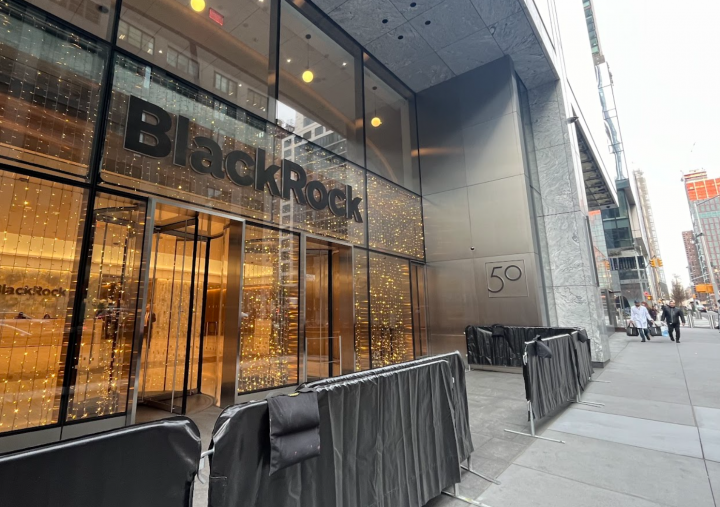
BlackRock, during the presentation of its 2024 Global Outlook at its New York headquarters, indicated that the Federal Reserve is unlikely to cut interest rates until the second half of next year, a scenario the market currently sees as highly improbable. This divergence in expectations set the stage for the event, titled “Context is Everything”, where the asset manager shared its strategic insights.
Journalists attending found themselves navigating a terrain of industry jargon, from private debt discussions to concepts like “constructive convexity” and “tactical directional views.” Yet, the crux of BlackRock’s message was delivered succinctly by senior strategist Wei Li to an audience of around twenty at the breakfast meeting: the world has entered a new regime characterized by lower growth, higher inflation, increased volatility, and persistently higher interest rates than what the market anticipates.
Higher for longer
BlackRock argues that while the Federal Reserve has probably reached the end of its rate hike cycle, the market is overly optimistic about interest rate cuts. Despite a 55 percent market prediction of a rate cut by early next year, BlackRock foresees rates will stay unchanged until the second quarter of next year due to expected inflation remaining above the Fed’s two percent target. The CME FedWatch Tool currently estimates only a 0.6 percent chance of this scenario.
Li highlighted the sluggish average annual growth rate of less than 1.8 percent in the U.S. economy since the pandemic, a figure falling short of pre-pandemic expectations. BlackRock predicts that factors like rising production costs, global economic ‘splintering’, and the shift to a low-carbon economy will drive long-term inflation in major economies. Central banks, according to Li, will have to accept structurally higher inflation due to massive government spending and debt.
This new economic landscape, Li emphasizes, is a reality rather than a hypothesis and presents a challenging trade-off for central banks. To control inflation, policies must remain tight, suggesting that interest rates will stabilize well above pre-pandemic levels. For investors, the implication is clear: traditional cyclical strategies will be less effective.
Less cash in 2024
Importantly, according to Li, investors will hold less cash in the coming year. In 2023, global investors added a record $1.1 billion to their cash investments, the highest allocation since the pandemic.
While an overweight position in cash made sense for some investors during rapidly rising interest rates, BlackRock says that has become a difficult investment to justify now that the Fed has reached its likely final interest rate. ‘Many investors seem to be waiting on the sidelines for more clarity on the policy path; we warn that if they do so now, they risk missing out on potential hikes in other asset classes,’ Li said.
With limited growth expectations and persistent inflation, BlackRock maintains a tactical underweight in developed-market equities. However, BlackRock does see more opportunities for active stock selection to beat the market in the new regime. BlackRock is positive on Japan in the short term, despite already rising prices there. The potential of the artificial intelligence theme is also a potential source of near-term alpha in developed markets, according to the asset manager.
Strategically, BlackRock is maximally overweight inflation-linked bonds. And within developed-market sovereign debt, short-term and medium-term maturities are preferred, according to BlackRock Investment Institute’s outlook.
Private credit
What journalists should do with the fact sheet on private credit becomes clear when Jeff Cucunato, portfolio manager of BlackRock’s credit strategy, is given the floor. According to him, BlackRock sees the real opportunities in the private debt market.
The common suggestion that too much money is running after too few possible investments in the private debt market is a farce, according to Cucunato. BlackRock expects the assets of the currently $1600 billion market to swell to $3,500 billion within five years, in what Cucunato calls a “fundamental change in the financial system”.
Related articles on Investment Officer:
- Will the Magnificent 7 remain a driving force in the S&P 500?
- Outrageous Predictions: ‘Reality has often outpaced fantasy’
- BlackRock has ‘aggressive plans’ for the Eltif market